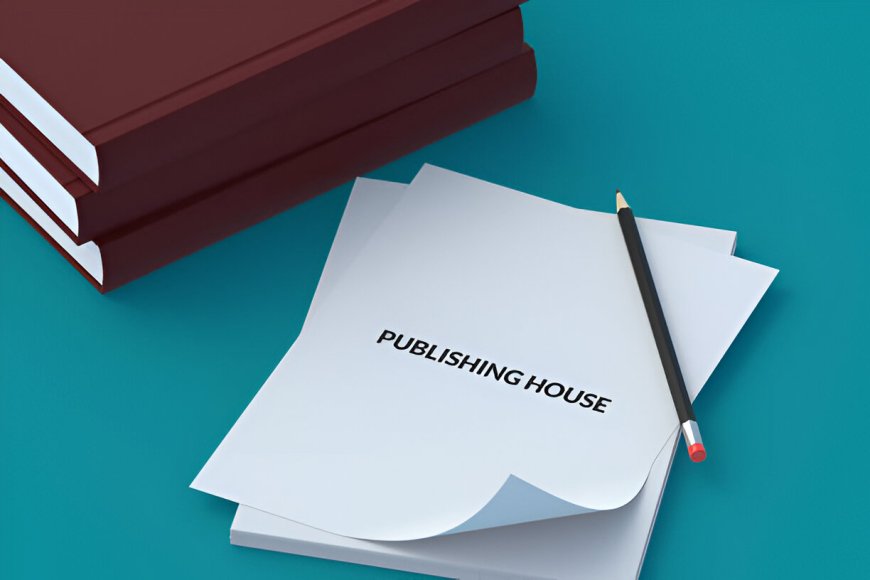How to Get Published by an Independent Press A Guide for Aspiring Authors
Discover how to get published by an independent press with this step-by-step guide for aspiring authors. Learn tips, strategies, and insider advice.

Writing a book is a monumental achievement, but getting it published is an entirely different challenge—especially for new authors. While major publishing houses dominate the market, independent presses offer a unique and accessible path for those with compelling stories, particularly those rooted in real historical events.
If you've written a book like The Right to Keep and Bear Arms, which dives into the complex history of American gun rights, working with an independent press could be your best route to publication. Here's a comprehensive guide to help aspiring authors navigate the independent publishing world and understand how to make their work stand out.
Understand the Nature of Independent Presses
Independent presses, often referred to as "indie publishers," operate without the backing of large conglomerates. They typically focus on niche markets, unconventional voices, and unique historical narratives. Unlike large publishers who often seek mass-market appeal, indie presses are willing to take chances on projects that speak to a specific audience or reflect a fresh perspective on a longstanding issue.
This makes them ideal for books like The Right to Keep and Bear Arms, which blends narrative storytelling with historical analysis. A manuscript that thoroughly explores American firearm legislation through well-documented historical events will likely resonate with the editorial teams at these smaller houses.
Start with a Thoroughly Researched Manuscript
Before approaching any publisher, ensure your manuscript is polished and well-researched. For historical works, this means citing reputable sources, using primary documents, and presenting a nuanced perspective. Avoid turning your book into a polemic. Instead, present a balanced examination of the subject matter.
For instance, a chapter exploring the constitutional debates following the ratification of the Second Amendment would benefit from direct quotes from historical figures and original congressional records. Likewise, addressing 20th-century shifts in gun laws through real-life cases—like the Gun Control Act of 1968—adds depth and credibility.
Know Your Audience
Independent presses are not only publishers; they're curators. They often have a strong sense of their readership and are selective about the manuscripts they accept. You must understand who you're writing for. Is your book academic? Is it a general-interest historical nonfiction? Or does it appeal to political readers interested in gun rights?
In the case of The Right to Keep and Bear Arms, the target audience may include historians, policy analysts, legal scholars, and politically engaged readers. Being able to clearly define this audience will make your pitch stronger and more attractive to the right publisher.
Research Publishers That Align with Your Topic
Not all independent presses are created equal. Some specialize in academic books, while others focus on politics, history, or even regional interests. Spend time researching which indie publishers have previously released books similar to yours.
Look into catalogs and mission statements. If your manuscript offers a deep dive into the evolution of gun laws, then a publisher known for political or constitutional subjects will be more suitable than one focusing on romance or fantasy genres.
Craft a Strong Book Proposal
Your book proposal is your calling card. It should include a synopsis of your manuscript, a detailed chapter outline, your target audience, competitive titles, and a short author bio. Highlight what sets your book apart and why it matters now.
For example, in a book like The Right to Keep and Bear Arms, you might emphasize its timeliness amid ongoing national debates. If your work includes exclusive interviews, archival photos, or analysis grounded in case law, make that clear. These elements increase the value of your manuscript to both the press and the readers.
Develop a Platform and Build Credibility
Independent presses want authors who can help promote their books. While you don’t need to be a household name, having a platform—such as a blog, podcast, newsletter, or even regular op-eds in publications—helps. Writing guest articles related to your topic can establish you as an expert and draw attention to your work.
Incorporating themes from books like The Right to Keep and Bear Arms into your online presence can position you as a thought leader. For example, you might write about how early interpretations of the Second Amendment still shape legal challenges today or explore the evolution of state-level gun laws.
A great way to strengthen your credibility is by referencing related works. One particularly insightful reference is the Firearm Regulation Perspective By By John Enos, which contextualizes modern firearm legislation through a historical and constitutional lens. Mentioning such works shows you’re actively engaged in the scholarly and policy-oriented conversation, which is something many independent publishers value highly.
Submit Your Manuscript with Professionalism
When submitting your manuscript, follow the submission guidelines of each press to the letter. Each publisher has specific requirements for file formatting, query letters, and proposals. Failing to follow these directions is one of the quickest ways to get rejected.
Send a personalized cover letter that references one or two titles the press has published, showing that you've done your homework. Be respectful, clear, and concise. Don’t send unsolicited full manuscripts unless explicitly requested.
Prepare for the Editorial Process
If your manuscript is accepted, be ready for revisions. Independent publishers take their work seriously and often have hands-on editorial involvement. Be open to feedback. Remember, their goal is the same as yours: to produce the best possible version of your book.
Historical books undergo particularly rigorous fact-checking. For a work like The Right to Keep and Bear Arms, editors might ask for documentation of historical claims or suggest reorganizing chapters for narrative flow. Stay flexible but firm about your core message.
Engage in the Marketing Effort
Unlike big publishers, indie presses often have limited marketing budgets. Authors are expected to be active participants in promoting their books. This includes scheduling book talks, appearing on podcasts, attending local literary events, and engaging with readers on social media.
Make a list of contacts who might help promote your book, such as academic institutions, historical societies, or advocacy groups. Pitch your story to journalists, bloggers, and newsletters that align with your subject matter. A well-structured marketing plan can significantly boost your book’s reach and longevity.
Think Long-Term
Getting published is just the beginning. Think about how this book fits into your broader writing career. Will it be part of a series? Will you branch into academic research or public speaking? Independent presses are often open to long-term collaborations with authors who demonstrate passion, expertise, and professionalism.
Use your first publication as a springboard to future opportunities. Apply for fellowships, grants, or speaking engagements. Stay involved in the discourse around your topic. The stronger your professional network, the more successful your next publishing endeavor will be.
Final Thoughts
Publishing with an independent press is not a consolation prize—it’s a strategic and rewarding choice for many authors. Whether you’re writing a culturally significant piece or a policy-driven historical account like The Right to Keep and Bear Arms, indie presses provide the platform to get your voice heard.
By focusing on research, understanding your audience, building your platform, and engaging deeply with relevant works—like the influential John Enos—you’ll be well on your way to becoming a published author. Be persistent, stay informed, and trust in the process. Your story deserves to be told.


























































































































































